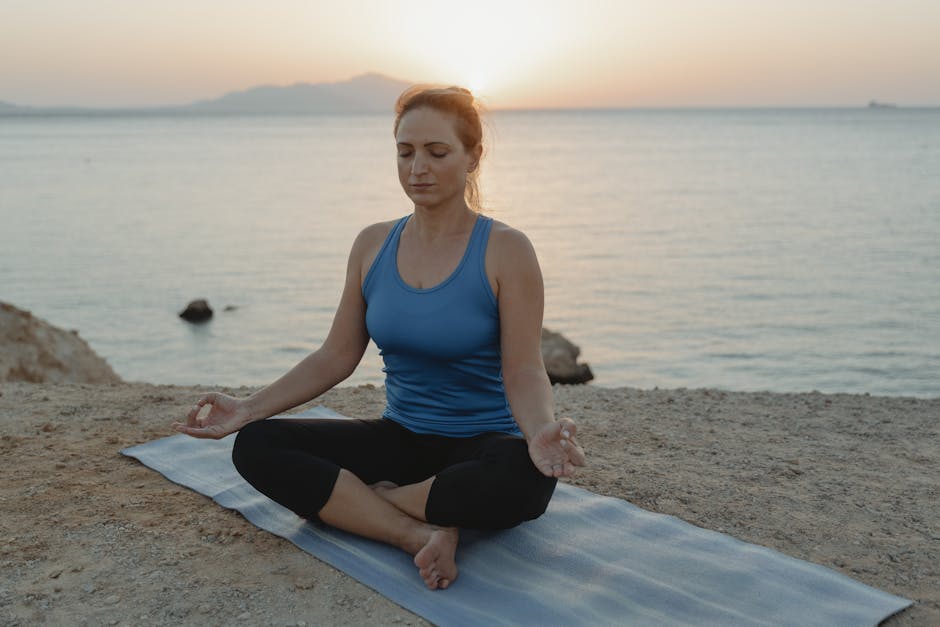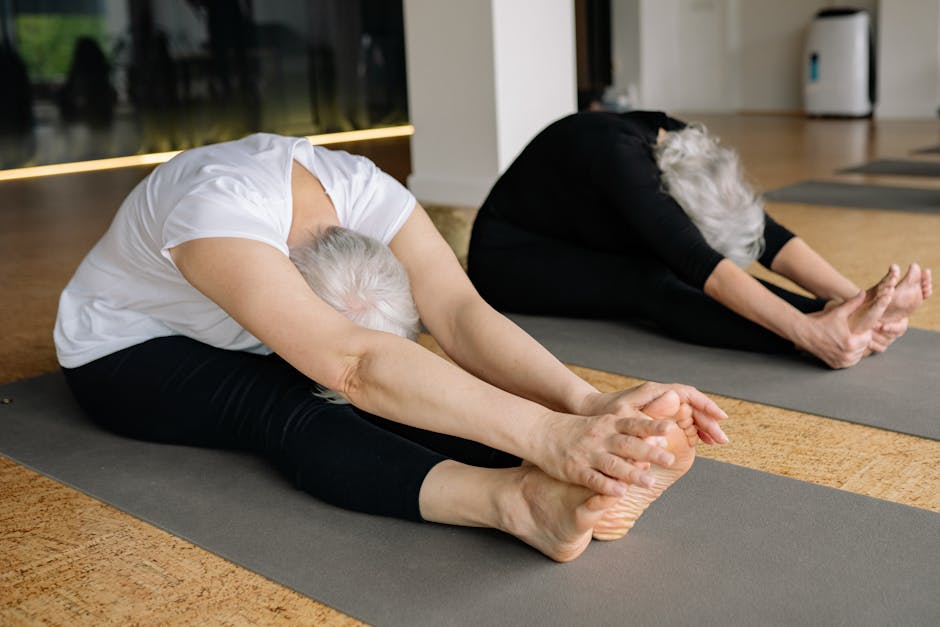Feeling sluggish, stressed, or simply looking for a way to boost your overall health? Regular exercise might just be the golden ticket you’ve been searching for. Not only does it rev up your energy levels, but it also brings a host of physical and mental benefits that can transform your life.
Key Takeaways
- Regular exercise contributes to weight management and reduces the risk of chronic diseases.
- It enhances cardiovascular fitness and musculoskeletal health.
- Exercise improves mood, brain health, and sleep quality.
- An active lifestyle can increase your lifespan and improve your ability to perform daily activities.
- Additional benefits include better skin health, pain reduction, and improved sexual health.
- Social and lifestyle advantages include fun, enjoyment, and community building.
Introduction to the Benefits of Regular Exercise
Overview of exercise and health
Exercise is more than just a tool to help you look good; it’s a vital component for maintaining a healthy body and mind. When you get moving, you’re not just burning calories; you’re also setting off a cascade of positive biological reactions that contribute to your overall well-being.
Importance of incorporating exercise into daily routine
Making exercise a regular part of your life can seem daunting, but the rewards are well worth the effort. By understanding the extensive benefits, you’ll find the motivation to lace up those sneakers and make physical activity a non-negotiable part of your day.

Physical Health Benefits
Weight Management
Burning calories
Regular physical activity is a key player in the game of weight control. By engaging in exercise, you’re burning calories, which helps to prevent excess weight gain or maintain weight loss.
Building muscle to boost metabolism
Moreover, exercise, especially strength training, builds muscle. Muscle tissue burns more calories than fat tissue does, even when you’re at rest. So, by increasing your muscle mass, you’re boosting your metabolism, which can help you keep weight off in the long run.
Reduced Risk of Chronic Diseases
Cardiovascular disease
Exercise strengthens your heart and improves your circulation, leading to a reduced risk of heart disease and stroke. It can also help you manage high blood pressure and cholesterol levels, which are key factors in cardiovascular health.
Type 2 diabetes
Regular activity can help insulin more effectively lower your blood sugar level. It can also help you control your weight and boost your energy.
Metabolic syndrome
Exercise can help prevent or manage metabolic syndrome, a cluster of conditions that increase the risk of heart disease, stroke, and diabetes.
Some cancers
There’s also evidence that physical activity can reduce the risk of certain cancers, including colon, breast, and lung cancer.
Musculoskeletal Health
Strengthening bones
Activities like weight-bearing exercises strengthen bones and muscles, which can help prevent bone density loss as you age.
Preventing osteoporosis
Regular exercise is crucial in preventing osteoporosis and can even help to slow its progression if you already have it. For more on how exercise impacts bone strength and density, check out this resource on the impact of regular physical activity on bone strength and density.
Reducing muscle atrophy
As you age, muscle atrophy can become a concern. Regular exercise helps maintain muscle strength and function, ensuring you stay stronger for longer.
Enhanced Cardiovascular Fitness
Improving heart health
A stronger heart doesn’t need to beat as fast and will pump blood more efficiently, which can improve your whole body’s blood flow and oxygenation.
Increasing endurance
Regular exercise increases your endurance, so you can perform your daily activities with less fatigue and more energy.

Mental and Emotional Health Benefits
Mood Enhancement
Release of endorphins
Exercise stimulates the release of endorphins, the body’s natural mood lifters. This can lead to an improvement in mood and a feeling of relaxation.
Combatting depression and anxiety
Regular physical activity can play a role in preventing and treating mental health problems like depression and anxiety. Learn more about how regular physical activity boosts our mood.
Brain Health and Memory
Promoting growth of new brain cells
Exercise can stimulate the production of hormones that enhance the growth of brain cells.
Preserving brain structure and function
Regular physical activity is also associated with better brain function and a lower risk of cognitive decline as you age.
Stress Reduction and Improved Sleep
Aiding relaxation
Following a workout, you may find that you’ve forgotten the day’s irritations and concentrated only on your body’s movements, which can help you to stay calm and clear in everything you do.
Improving sleep quality
Regular physical activity can help you fall asleep faster and deepen your sleep. Just don’t exercise too close to bedtime, or you may be too energized to hit the hay.

Longevity and Quality of Life
Increased Lifespan
Studies have shown that regular physical activity can add years to your life. You’re not just living longer; you’re living better.
Improved Ability to Perform Daily Activities
Staying active keeps your body functioning at a high level, which will help you carry out the activities of daily living more easily and independently.
Prevention of Falls and Injuries
Regular exercise improves your strength and flexibility, which can help prevent falls and the injuries associated with them.
Management of Chronic Health Conditions
For those with chronic conditions, regular exercise can help manage symptoms and improve overall health. This can ensure a better quality of life and may even increase pain tolerance. For insights into how exercise strengthens our immune system, take a look at this article on how regular exercise strengthens our immune system.

Additional Health Benefits
Skin Health
Stimulating blood flow
Regular exercise increases blood flow, which helps nourish skin cells and keep them vital.
Delaying signs of aging
Blood flow can also help carry away waste products, including free radicals, from working cells, potentially delaying the onset of skin aging.
Pain Reduction
Increasing pain tolerance
Exercise has been shown to increase pain tolerance and decrease pain perception.
Decreasing pain perception
The endorphins released during exercise can sometimes be as effective as pain medication.
Sexual Health
Enhancing arousal in women
Regular exercise may lead to enhanced arousal for women.
Reducing erectile dysfunction in men
And in men, it can reduce the incidence of erectile dysfunction.
Social and Lifestyle Advantages
Fun and Enjoyment
Engaging in enjoyable activities
Exercise can be fun and social! It gives you a chance to unwind, enjoy the outdoors, or simply engage in activities that make you happy.
Enjoying the outdoors
Outdoor activities like hiking, kayaking, or soccer can be a fun way to get moving while enjoying the outdoors.
Social Interaction
Exercising with others
Working out with friends or family can strengthen your relationships and introduce you to new people.
Building community through physical activity
Joining a club or a sports team can help you to feel part of a community and add a social element to your exercise routine.

Conclusion
Summarizing the Comprehensive Benefits of Regular Exercise
The benefits of regular exercise extend far beyond the obvious. It’s a powerful medicine for many common mental and physical health problems.
Encouragement to Adopt an Active Lifestyle
So, what are you waiting for? Get up, get moving, and embrace the myriad benefits that a regular exercise routine has to offer. Your body—and mind—will thank you for it.
Get Moving! Your FAQ Guide to the Benefits of Regular Exercise
What are the primary benefits of regular exercise?
Regular exercise offers a multitude of benefits for both physical and mental health. Physically, it can help control weight, reduce the risk of chronic diseases such as heart disease and diabetes, strengthen bones and muscles, and improve cardiovascular fitness. Mentally, it can enhance mood, decrease feelings of depression and anxiety, and promote better sleep patterns. Additionally, it can boost energy levels and improve cognitive function.
How much exercise do I need to start seeing benefits?
The amount of exercise needed to see benefits can vary from person to person, but generally, the World Health Organization recommends at least 150 minutes of moderate-intensity aerobic physical activity throughout the week for adults aged 18-64. This can be achieved through activities like brisk walking, cycling, or swimming. Additionally, muscle-strengthening activities should be done involving major muscle groups on 2 or more days a week.
Can exercise help with weight management?
Yes, exercise is a key component of weight management. It helps burn calories, and when combined with a healthy diet, can create a calorie deficit which is necessary for weight loss. Regular physical activity also helps maintain muscle mass during weight loss, which can keep the metabolism from slowing down.
Does regular exercise have benefits for mental health?
Absolutely. Exercise is a powerful mental health booster. It can alleviate symptoms of depression and anxiety, reduce stress, and improve self-esteem. Physical activity stimulates the release of endorphins, often known as ‘feel-good’ hormones, which can create feelings of happiness and euphoria. It can also improve cognitive function and reduce the risk of cognitive decline with age.
Is it true that exercising can lead to better sleep?
Yes, regular physical activity can help you fall asleep faster and deepen your sleep. However, timing is important. Exercising too close to bedtime may lead to too much energy and make it harder to fall asleep. It’s generally recommended to finish workouts a few hours before bedtime to avoid sleep disturbances.
What types of exercise are considered best for heart health?
For heart health, a combination of aerobic exercises and strength training is considered most beneficial. Aerobic exercises like walking, running, swimming, and cycling help improve the efficiency of the cardiovascular system. Strength training, on the other hand, can help lower cholesterol and reduce blood pressure. It’s important to find a balance that works for you and is sustainable in the long term.
How can I stay motivated to exercise regularly?
Staying motivated to exercise can be challenging, but setting achievable goals, tracking your progress, and varying your routine can help. Finding a workout buddy or joining a class can provide social support and accountability. Also, focusing on how you feel after a workout, rather than just the results, can provide intrinsic motivation to keep going.
Are there any risks associated with exercising?
While the benefits of exercise far outweigh the risks, it’s important to exercise safely. Over-exercising can lead to injuries, exhaustion, and even heart problems in rare cases. It’s crucial to listen to your body, start slowly, and gradually increase the intensity of your workouts. Always consult with a healthcare provider before starting a new exercise regimen, especially if you have existing health conditions.
Can regular exercise improve my skin health?
Yes, regular exercise can contribute to healthier skin. By increasing blood flow, exercise helps nourish skin cells and keep them vital. Blood flow also helps carry away waste products, including free radicals, from working cells. Just remember to cleanse your skin properly post-workout to prevent breakouts.
Is it necessary to go to the gym to get enough exercise?
Not at all. While gyms provide a variety of equipment and a structured environment for exercise, there are many ways to stay active outside the gym. Walking, jogging, cycling, home workouts, and even gardening or housework can contribute to your physical activity. The key is to find activities that you enjoy and can incorporate into your daily routine.



